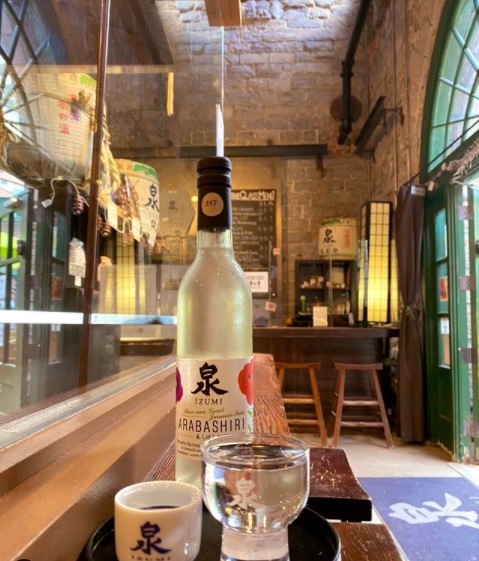A reverence for nature is mutual. “Forest bathing” is a cultural phenomenon in both places, as practitioners seek a calming physiological effect by being surrounded by trees. There is an awareness of transience in life, as demonstrated by the seasons. In Japan, that awareness is called aware, and is reinforced by the yearly growth and release of cherry blossoms. In Estonia, sunlight is transient. In summer, it's bountiful. In winter, it is scarce.
BBC reported that 50 percent of Estonians “believe in a spirit or life force.” That belief may connect to nature or our ancestors. In the Shinto faith of Japan, kami are the spirits of aspects of nature and sometimes those who are deceased.

Then, Estonians and Japanese also both enjoy fresh fish and a nice drink to fill our bellies and wind down. Beer is popular, but for harder stuff, there's vodka in Estonia, and sake in Japan. In North America, Estonian-Canadian Ken Valvur has leaped fully into the Japanese side of things. In fact, you could consider him a diplomat of Japanese cuisine.
This grew into Bento Sushi, a brand that rode on the wave of Japanese food's increased popularity outside of Japan. It's now frequently named “North America's second-largest sushi-brand”, and definitely is the biggest in Canada.
Valvur started small, opening a sushi takeout operation in Toronto in 1996, after working in finance for several years in Tokyo. This grew into Bento Sushi, a brand that rode on the wave of Japanese food's increased popularity outside of Japan. It's now frequently named “North America's second-largest sushi-brand”, and definitely is the biggest in Canada. You've probably seen Bento Sushi all over the Greater Toronto Area and other parts of Canada, including in grocery stores such as Real Canadian Superstore.
In 2007, Valvur sold Bento Sushi. Brewing sake became his next target, leading him to found Ontario Spring Water Sake Company (or Izumi Sake Brewery) in 2011. A few points underscore sake production at Ontario Spring Water Sake Company.
The sake is unpasteurized, to be served and sold to customers fresh. It is made with soft water, painstakingly brought in from the best sources in Ontario. Junmai rice and koji fungus (aspergillus oryzae) are used in the brewing process.
In its place, Ontario Spring Water Sake Company brews 20,000 litres of sake each year, both to be tasted at its wooden tables and long bar, or from bottles sold at LCBO locations.
The sake is based on long-standing tradition: the Miyasaka Brewing Company, which has been around in the city of Nagano for approximately 400 years, assisted Valvur when he began making the sake. Expert advice and equipment was brought in from Japan to the brewery's location in Toronto's Distillery District, where Gooderham & Worts whisky distillery once stood. In its place, Ontario Spring Water Sake Company brews 20,000 litres of sake each year, both to be tasted at its wooden tables and long bar, or from bottles sold at LCBO locations.
In autumn 2017, Valvur joined the Board for British brand YO! Sushi, who purchased Bento Sushi for 100 million Canadian dollars. QSR magazine has identified YO! Sushi as “the first restaurant in the U.K. to deliver sushi via conveyor belt.” With this purchase, both companies intended to cooperate and expand further across North America.
More recently, the brewery has started to offer sake flavoured with lime; or even sake apple cider with hints of ginger and maple syrup — sake that's respectful to Japanese practices, but is a truly Canadian fusion. The sake has become a trusted brand by izakaya taverns in Toronto, rounding out their welcoming and hearty ambiance. In this way, the initial food and drink missions have united, with an Estonian at the helm, continuing to make it an unstoppable force on the food scene.
This article was written by Vincent Teetsov as part of the Local Journalism Initiative.



